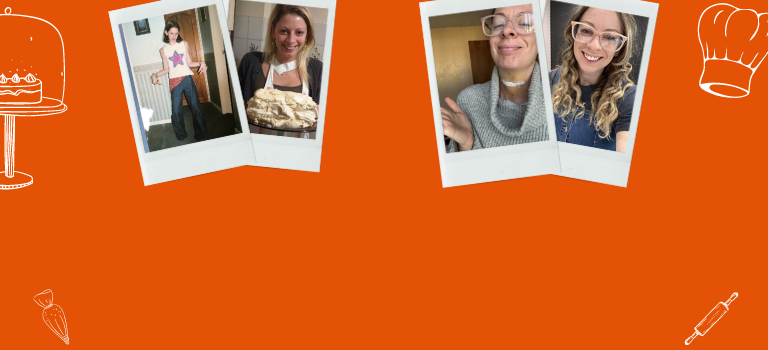Surgery, radioactivity and a gluten free diet
Blogger and cookbook author Sarah Howells talks about life with coeliac disease and her autoimmune thyroid condition, which can often be associated.
“I was first diagnosed with coeliac disease in 2002 when I was 12 years old, but around the same time I was also told I had an overactive thyroid.
This, it later transpired, was Grave’s disease - an autoimmune condition causing my thyroid to keep going overactive, despite numerous attempts at treatment.
And while my coeliac disease was a relatively simple transition into gluten free life, my thyroid has definitely taken me on a rollercoaster ride!
My symptoms for both conditions were relatively intertwined. As a child I was very short and skinny, struggling to put on weight and not developing at the same rate as my friends.
This is a common trait of both coeliac disease and an overactive thyroid.
While I was struggling to absorb the nutrients I needed from food, my thyroid (which essentially controls your metabolism) was burning off what little food I was absorbing at double speed.
This also came with extra side effects, including feeling very hot and anxious. Meanwhile, I was experiencing extremely painful stomach ache from my undiagnosed coeliac disease. Needless to say, I remember those years being quite uncomfortable!
As far as I remember, my coeliac disease diagnosis came first. I am the only person diagnosed with coeliac disease in my family. I do, however, have a family history of thyroid conditions.
My coeliac disease diagnosis came after a few years of repeated trips to the doctor. At first they tried me on a lactose free diet, but it wasn’t until my symptoms persisted and I saw a different GP that a test for coeliac disease was suggested.
We had never even heard of gluten or coeliac disease before, but a blood test and endoscopy with biopsy confirmed it was the case - so off I went with my gluten free starter packs and a whole new diet to learn. My thyroid, however, had other ideas.
Since my overactive thyroid diagnosis I was on-and-off medication for a decade to try and suppress my thyroid. But every time I would come off it, my thyroid would remain in remission for a while until going overactive again.
As well as my other symptoms, I had a bulge (a goitre) in my neck which I was horribly self-conscious about, and in 2010 I elected to have total thyroidectomy surgery to remove my thyroid and hopefully put a stop to all my problems.
This, it turned out, was not so simple. Unable to locate a nerve by my vocal chord, the surgeon couldn’t remove all of my thyroid and the small remaining part came back with a vengeance.
I spent another decade on-and-off of medication again, always knowing my thyroid had once again turned overactive when I felt hot, anxious, had a racing heart-rate and palpitations.
I also developed another autoimmune condition, Thyroid eye disease, for which I am still on medication for - and a thyroglossal cyst which I had surgically removed in November 2023.
Eventually in 2022, I opted for radioactive iodine treatment, which uses targeted radioactivity to essentially ‘kill’ the thyroid off.
The treatment was hugely successful and now I feel the healthiest I’ve ever felt. My thyroid is now controlled by medication and I’m thriving on my gluten free diet.
For me, coeliac disease has been a blessing - it’s the reason I fell in love with food again, and now I absolutely love cooking and recreating all my favourite foods without gluten.
It can be a challenge in certain situations, such as when you just want to grab lunch on-the-go, but awareness has improved hugely since I was diagnosed 20+ years ago and I feel like I finally feel the healthiest and most in-control of my body I’ve ever been.
If you or someone you know has a thyroid condition and you don’t feel you’re improving, please go to your GP and ask to be tested for coeliac disease, as having autoimmune thyroid disease puts people at greater risk of having coeliac disease.”
Thank you so much to Sarah, for sharing her experiences living with coeliac disease and an autoimmune thyroid condition. You can find out more about autoimmune thyroid disease here.
You can also shop her latest cookbook here.
People with autoimmune thyroid disease have a greater risk of also having coeliac disease than the general population. NICE guidelines recommend testing for coeliac disease in people with autoimmune thyroid disease. If you suspect you have symptoms of either coeliac disease or autoimmune thyroid disease, talk to your GP for advice. Not everyone with coeliac disease has or will develop thyroid problems. For those who do have autoimmune thyroid disease, severe complications are rare, but unexplained changes in weight, eye problems, fatigue or a swelling at the neck (goitre) should be discussed with your healthcare provider.
